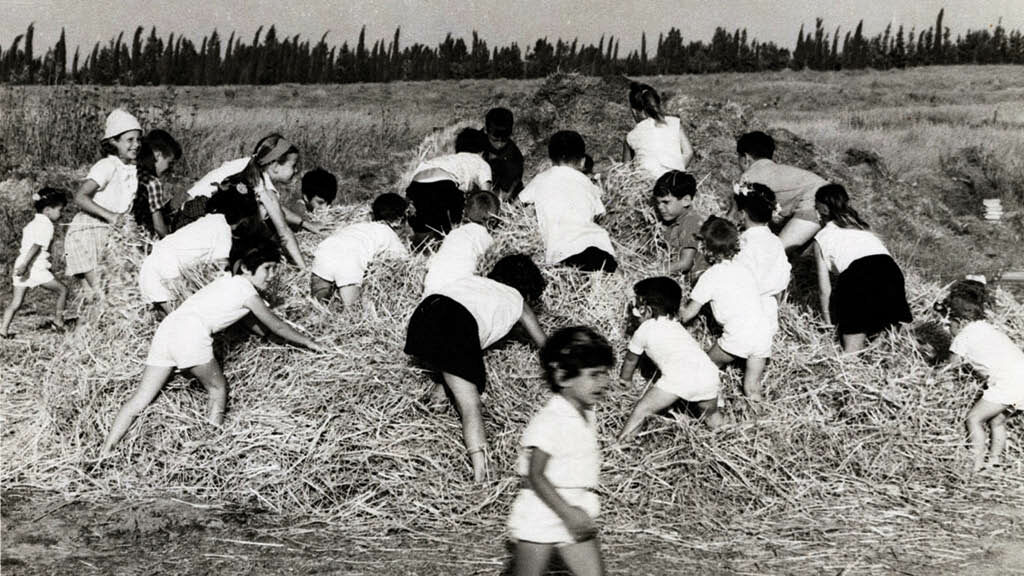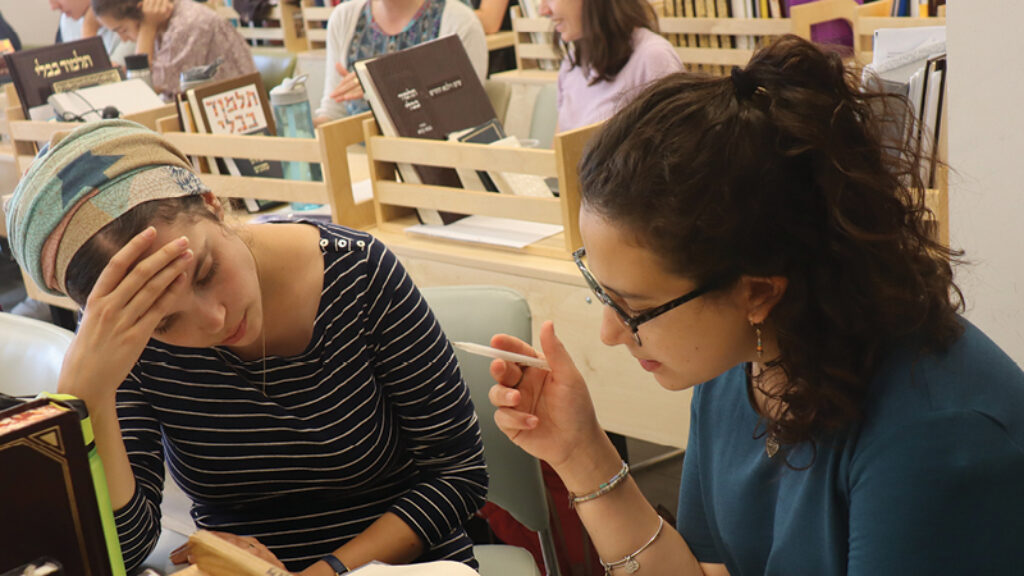Letters, Summer 2012
Too Much Chometz?
In Chronicles II 25:12, there is a horrifying image of the sons of Judah throwing their captives off a cliff, dashing them to pieces on the rocks below. This image came to mind as I was reading Leon
Wieseltier’s savaging of the New American Haggadah (“Comes the Comer,” Spring 2012). In an age when all sorts of abuse are being called out, this review suggests a new species—the “abuse of scholarship,” assuming one believes scholarship is meant to enlighten, not to pummel an opponent who is unable to respond.
I write this letter not out of loyalty to the author/translator. (I am a moderate fan of Englander’s fiction and have never met him.) But, as a reader of Jewish text, literature, and the Jewish Review of Books, I feel ill served and even offended by Wieseltier’s intemperate, condescending review.
After the first half-dozen times that Wieseltier challenges Englander’s translation/interpretation of a word or phrase, I realized that he believes the translation winnows out the intent and “mystery” of the Haggadah and is not always mellifluous. Wieseltier bundles his criticisms in allusions to a sufficient number and diversity of sources to suggest his own mastery of Jewish texts. But after twenty-five to thirty such critical blows, prompting him to characterize Englander’s work as “foolish,” “ludicrous,” “clumsy,” and “ridiculous”—perhaps arrogant charges leveled against a writer of serious purpose—Wieseltier seems more like a man determined to overwhelm us with his own scholarship rather than to discredit the translator’s. After a good 1,500 words of vitriol, Wieseltier seems to realize his excess and offers us a witty one-word paragraph as a salve. The word is dayenu. Unfortunately, he is already many outstretched arms past dayenu.
The problem that inspires this letter is that aside from shamelessly dashing the defenseless Englander to pieces on the rocks below, Wieseltier demeans the reader of this journal as well. (I wish the editorial wisdom of the Jewish Review of Books had saved him from his relentlessness.) Even if the New American Haggadah fails to meet Wieseltier’s requirements for a “faithful” translation of the Haggadah, his review implies through its excess and invectives that anyone finding value or meaning or an expanded kavana through Englander’s take on the Pesach text is a muttonhead. Wieseltier may have an axe to grind with Englander, or with American Jews in general (he bemoans “the magnitude of their illiteracy” in his first paragraph), but that doesn’t give him the right to subject us to this hatchet job.
Len Lyons
Newton Highlands, MA
What Leon Wieseltier has given us is not a review at all, but an editor’s mark-up of a manuscript, the sort of thing sent back to an author, who might accept some of the points and argue down others, sometimes changing the mind of the editor along the way. There’s a kind of role-play in such exchanges, in which the editor is obliged to assume an almost prosecutorial stance, while the author plays the defendant. For obvious reasons, such exchanges are strictly private. Presented here, from one side only, it becomes a slam, and a particularly cheap one at that, in which the “reviewer” avails himself of every opportunity to establish his nobility even at the far edges of relevance. And yet, despite his erudition, I believe that Mr. Wieseltier has failed to grasp some important distinctions, and in doing so missed the larger picture entirely.
To his first complaint: The language of benediction is not prose, and it’s laden with meaning that is not ordinary. (Is there anything ordinary about this story?) It’s a formulation—a mantra, repeated again and again throughout the service. So, to say “God-of-Us” once may fall strangely on the ear, but repeated, as it is throughout the Seder, it becomes something else, and I, for one, feel we can only benefit from the particularity of treatment given to eloheinu by Mr. Englander. “God-of-Us” implies a mutually enveloping relationship, not a single-sided one. It’s a stretch, perhaps, but one to which many of us aspire—it has kavana. I mention this because a Haggadah, commentaries aside, is not a book to be read as prose, and shouldn’t be criticized as such. Rather, it’s a book to be experienced in a unique service in our own homes, where we are free to vary and interpret as we wish. Some might say the more halting, the better, and let it rise above the picayune. What’s more is that Mr. Safran Foer has given us some very lively table company, a group of pesachdik ushpizin (guests) with whom we can argue or agree as the case may be.
But these are only trees, not the forest. In saying nothing about the book’s quirky architecture or what it feels like in use, and not a word about its profuse illustrations (all of it the work of the outstanding graphic artist Oded Ezer), Mr. Wieseltier seems insensate to the experience of this Haggadah. Would he look at the great Haggadahs of old, say the Golden or Birds’ Head, and see only the misspellings? And did he notice that there are no transliterations, ubiquitous in American Haggadahs? If any book is greater than the sum of its parts, it’s the Haggadah, and this one presents us with a very large sum indeed.
Scott-Martin Kosofsky
Lexington, MA
I am one of the many American Jews who has no knowledge of Hebrew and can only sound out the words without understanding the meaning of more than a dozen of them. Of course, as a woman, it would have been rare at any time in Jewish history for me to have known much more than I do now. And I question how many men whose religious education began in the cheder (religious primary school) and ended when they turned 13 would have been much more fluent. There is a reason that the Jews of Eastern Europe communicated in Yiddish, not Hebrew.
My father, who had an Orthodox upbringing and a good enough command of Hebrew to get by in an Israeli kibbutz after World War II, never attempted to interpret the text of the Haggadah to us. We either read the Maxwell House translation or listened to my father race through the Seder without any comprehension. In my brief time as a supplemental school student, I learned to chant the four questions without being able to understand them, their function in the Seder, or their history.
Given that background, I am very grateful for Mr. Englander’s new translation. I find the “God-of-Us” and other stretches of English usage refreshing and thought-provoking. Even among those of us who do not understand the Hebrew, the new translation has inspired questions about what the text really means and why. Even though I cannot really imagine that I myself was a slave in Egypt or that God liberated me personally, this translation and the commentaries that accompany it encourage me to think about the Seder as an expression of my cultural heritage or Jewish identity and about how to present it to my friends and family as something more than a shared meal. Admittedly Judaism lite, but mine, such as it is.
Gilah Goldsmith
via jewishreviewofbooks.com
Great review. In the Haggadah itself, I was impressed by the carelessness regarding historical details and interpretations—also, the typos. Two examples:
a) Mount Gezerim (for Gerizim). That might be revenge by Englander’s subconscious for his joke in naming a fictional character something like Edgar Gezer after Etgar Keret (gezer being Hebrew for carrot.)
b) In the hineni mukhan u-mezuman before some cups of wine, he uses the word “besurat” instead of the expected besorat (tidings of), for besora, tidings. Perhaps besurat is the construct for the Spanish basura (trash).
Gideon Weisz
via jewishreviewofbooks.com
Leon Wieseltier Responds:
I am sorry if I ruined anybody’s Pesach. The eight days are hard enough without such polemical nastiness, I know. I had hoped to welcome the New American Haggadah to the world, not least because its editor is (or perhaps was) my friend, and its translator, with whom I have enjoyed cordial relations, seemed well equipped for his task. But I take these things—Hebrew, English, my duty as a scholar, my duty as a critic, my duty as a Jew—very seriously, and in my view the fault for any unpleasantness lies not in my insistence upon demonstrating the inadequacies of this Haggadah but in the inadequacies themselves. Presenting a new version of a central text of Judaism, and making large claims for its superiority to previous versions, is not a trifling matter, and the standard by which it must be judged is not Maxwell House, unless of course everything Jewish is to be prized mainly for its ethnic cuteness. Nathan Englander is no more “defenseless” than any writer or translator who puts a book before the public. Indeed, too many American Jewish readers are defenseless against his mistakes and misrepresentations.
I did not imply, not for a moment, that “anyone finding value or meaning or an expanded kavana through Englander’s take on the Pesach text is a muttonhead.” It’s a free country, and different people attain spiritual enlargement in different ways. Souls come in many varieties, and for the soul it is always catch as catch can. If The Prince of Egypt lifts you up, then be uplifted! But The Prince of Egypt is not Abravanel or the Maharal, and it is just a shabby internecine relativism to pretend otherwise. We are indeed “free to vary and interpret as we wish,” but the freedom to interpret does not vouch for the quality of the interpretation. Kavana, at least in its traditional conception, is not whatever gets you through the night. The integrity of its derivation is a part of what makes it powerful. The soul operates, or should, in some relationship to the mind, which makes distinctions between spiritual opportunities. In the Jewish tradition even mystics are intellectuals. Why would anybody want to soar on wings of error? So it was important to me to expose the errors of translation and interpretation—and the error of mistaking translation for interpretation—that I found in a book that would be used by many Jews at many tables. I thought I was being helpful. (Since Stuart-Martin Kosofsky lectures me about “trees” and “forests,” I should point out to him that there are indeed transliterations in the New American Haggadah. There are no forests without trees.)
Gilah Goldsmith’s letter includes two sentences that take my breath away and make me tremble for my brethren. The first is this: “Of course, as a woman, it would have been rare at any time in Jewish history for me to have known much more than I do now.” This, after she has admitted to “no knowledge of Hebrew.” But she is not living then, she is living now. If, now, after the re-establishment of Hebrew as a living language, and in a Jewish community in which Hebrew instruction is not too hard to find, a Jewish woman, a woman who takes pride in her Jewishness, knows no Hebrew, then she has only herself to blame. It can only be because she does not wish to know Hebrew, and believes that as a Jew she can do without it. Misogyny, religious or secular, is no longer what stands in her way. Goldsmith now excludes herself with the memory of exclusion. This is a chosen exclusion.
Like many American Jews, Goldsmith is very charitable about her Jewish shortcomings. And so she writes, in her second unforgettable sentence: “Admittedly Judaism lite, but mine such as it is.” I wonder if she is so blithe and self-forgiving about her other passions and obligations. Against such relaxation, I would remind her of the following. This deep and beautiful tradition of ours has made it all the way to us after a journey of over two thousand years. It was not inevitable that this would be so. It was an agonizing journey. Many forces tried to prevent the tradition from surviving this far, or at all. But the persecutions of the Jews did not prevail against the preservationist genius of the Jews. They preserved their tradition because they prized it, not because they were persecuted. We are the custodians of what they, our ancestors, recent and ancient, preserved. We hold it in trust for those who will come after us. We claim to revere it, and to be its beneficiaries. So by what right, by what arrogance and ingratitude, do we condemn large portions of it, with our ignorance and our indifference, to oblivion? The Jewish tradition, the Jewish God too, is not owed blind obedience, even according to some canonical accounts of Jewish faith: Over the centuries many elements of the tradition have been rejected, or made obsolete by internally justified reform. But you cannot reject or reform what you do not know. Dissent must be literate for it to have a strong claim on the inherited ways. Otherwise it is just glibness or scorn. The stubborn historical truth is that the primary instrument of Jewish preservation and Jewish development has been Jewish knowledge, attended (but not always) by Jewish practice. So “Judaism lite” is Judaism weightless, and losing gravity; Judaism attenuated and abandoned; our very own race to the bottom. I would not boast about it.
Lost and Misplaced
The University of Chicago library that holds the two-volume album (“The Lost Textual Treasures of a Hasidic Community,” Spring 2012) is the Regenstein, not the Regensburg, Library.
Rachelle Gold
Chicago, IL
Suggested Reading

Neither Friend nor Enemy: Israel in the EU
After five years at the European Parliament, the author reflects on Israel's place in the discourse of the EU's chattering (and legislating) class.

A Kibbutz and Its Fullness
"How could I remember my place and my people without contaminating the memories with the catastrophe that had just befallen us?"

Religion and Power
Rabbi Sacks, who is in the end an optimistic thinker, sees a process of internecine violence leading to religious moderation happening within Islam now.

An Unusable Past?
What did Jewish women know about Torah, and when did they know it?
Comments
You must log in to comment Log In